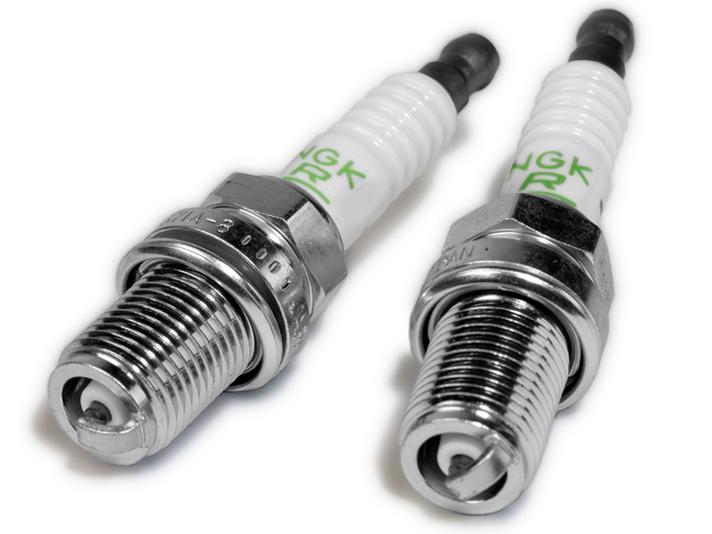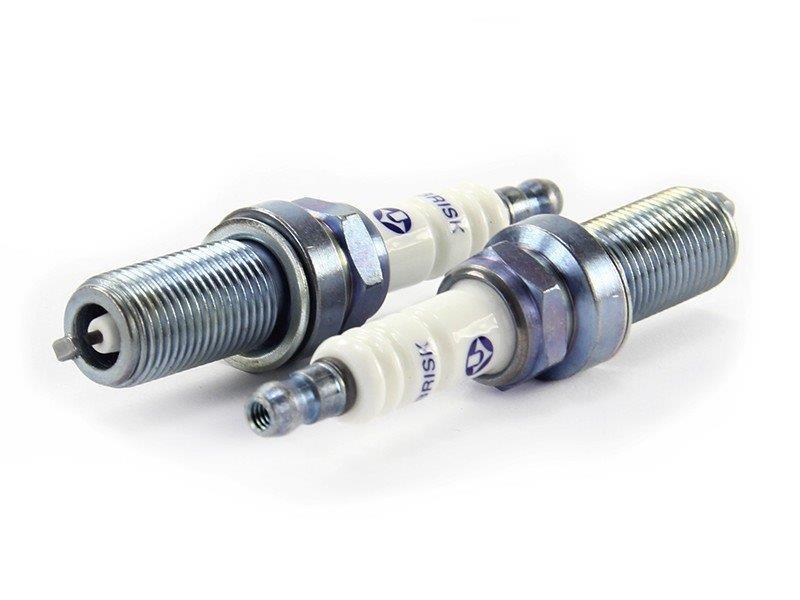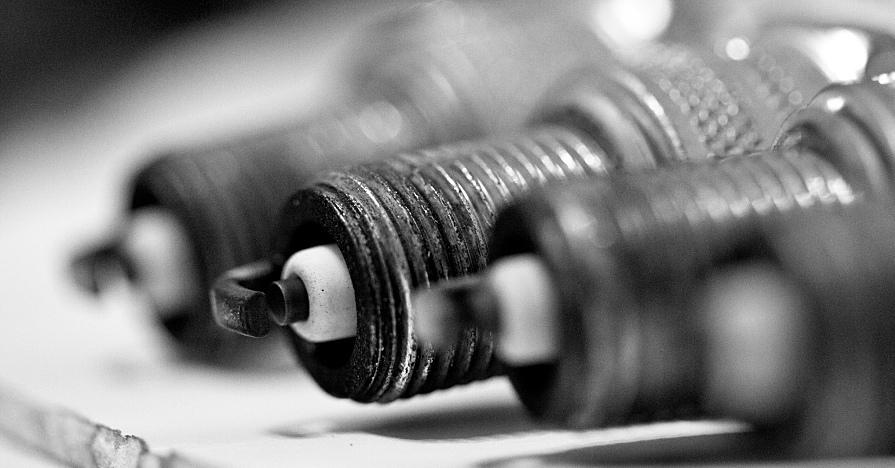A spark plug does the job of igniting the air/fuel mixture in the combustion chamber by creating electrical sparks. It’s a key component for the engine to function properly. You may think all spark plugs are the same since they do the same job. But there are different types of spark plugs, with the difference lies in the materials they are made of. They still do the same function, but the efficiency can vary from one type to another.
Contents
A Brief Discussion about the Types of Spark Plugs
Looking at a spark plug, you will see a central and a side electrode. Copper has been the material for these electrodes for a long time. But manufacturers now use a couple of other materials including platinum, iridium, and silver. Also, some plugs come with a smaller central electrode for generating electric current by using less voltage.
Overall, there are six spark plug types available in the market. All of them have their own unique benefits and downsides.
1# Copper Spark Plugs
Once, all spark plugs used to be made of solid copper. Nickel alloy is the material used for making the central electrode of these plugs. However, this alloy material is soft and delicate, so it has a short lifespan, somewhere between 10,000 and 20,000 miles.

The central electrode of this type has the largest diameter of all types, requiring more voltage for producing sparks. These plugs are the most compatible with older vehicles manufactured before the 1980s because they require little electrical current. Also, they perform well in high-compression or turbocharged conditions.
Pros
—Better for older vehicles
—Good for turbocharged conditions
—Inexpensive
Cons
—Short lifespan
—Needs more voltage
2# Platinum Spark Plugs
Similar to a copper spark plug, except for having a central electrode with a platinum disc soldered to the tip. For such a small change, it lasts an impressively long time, as many as 60,000 miles.
Platinum plugs generate more heat than the copper type, reducing debris buildup. They are most suitable for modern vehicles featuring an electronic distributor ignition system.
However, there are still better options than platinum spark plugs and this type is more expensive compared to the service it offers.
Pros
—Longer lifespan than the copper type
—Reduces carbon buildup
Cons
—Not the strongest of all types
—Less value for money
3# Double Platinum Spark Plugs
Double platinum plugs are the best option for a waste spark system in a distributor ignition. The double-platinum discs in these plugs fire twice that is the most useful for such an ignition system. The second spark gets wasted in other ignition systems.
Pros
—Best for a waste spark system
—Highly reliable
Cons
—Unsuitable for electronic DIS
—Expensive
SEE MORE
4# Iridium Spark Plugs
The longest-lasting of all types of spark plugs. Stronger and more hard-wearing than platinum, these plugs last up to 100,000 miles. Due to having a short center electrode, they require less voltage to produce the electrical current and provide almost a perfect combustion of the air/fuel mixture. For all these benefits, it makes sense that you have to pay more money for them than any other type.
If you already have iridium spark plugs in your vehicle, don’t downgrade to copper or platinum as it will affect the vehicle’s performance.
Pros
—Hardest of all types
—Have the longest lifespan
—Use less voltage
—Help with better combustion
Cons
—Most expensive
5# Double Iridium Spark Plugs
Like double platinum plugs, double iridium plugs have two iridium discs for more strength, permanence, and performance. They can yield sparks in any driving conditions and last 4 times than a copper plug.
Pros
—Enhanced performance
—Work under any conditions
—Last for a long time
Cons
—Expensive
6# Silver Spark Plugs
Among all types of spark plugs, silver is the least common. Featuring a silver-coated electrode tip, these plugs are mostly used in old European motorcycles and performance vehicles.

Silver plugs can maintain the same electrode gap throughout their lifetime because this metal is a great conductor of heat and highly resistant to corrosion. They last three times more than the traditional copper plugs and are slightly more expensive than them. They are not better than platinum and iridium plugs but offer a middle-ground between the cheap copper and expensive platinum and iridium.
Pros
—Great heat conductor
—Resistant to corrosion
—Long lifespan
Cons
—Pricier than copper plugs
—Limited applications
What kind of spark plugs do I need? You must be thinking this after learning about the variations. Well, you should always follow the manufacturer’s recommendations. Otherwise, iridium is the best choice given you have a new car and the budget. Platinum is another good option, but copper is the only alternative for older automobiles.



